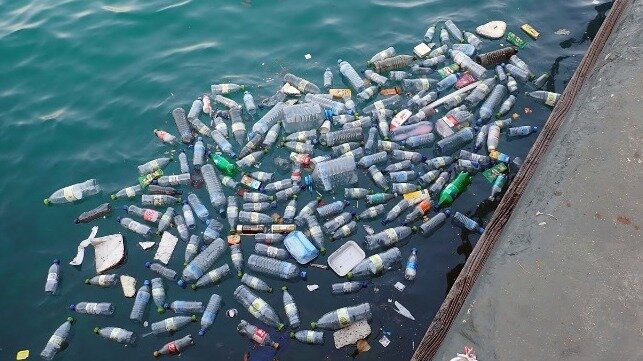Tehran Municipality installs RVMs to contain plastic pollution

TEHRAN – Tehran Municipality has installed 50 reverse vending machines (RVMs) across the capital to encourage the citizens to contain plastic pollution and promote waste segregation at source, YJC reported on Sunday.
RVMs are smart collectors for reusable plastic, glass and aluminum bottles and containers, which carry a capacity to recycle 2000 to 2500 bottles.
Several days after national plastic-bag-free day, the municipality managed to purchase the RVMs and install them on Shahrvand Markets in different parts of the city, which was inaugurated with the Tehran mayor Pirouz Hanachi in attendance.
Since the Iranian calendar year 1391 (March 2012-March 2013), Iran observes July 12 as plastic-bag-free day annually, on which several schemes and programs are carried out across the capital, aiming to raise awareness about plastic pollution which is negatively impacting daily lives.
Masoud Sariolghalam, director for Sharvand Markets, said that this technology is being exploited for the first time in the country.
Emphasizing on the incentive policy to collect valuable waste, he explained that when citizens give their bottles of glass and plastic to the RVMs, they receive a receipt that should write their name and phone number on it, then place it in the lottery box.
Each month, the municipality will grant prizes to the holder of phone number drawn at random; the prize is an electronic bike, he added.
The device can simultaneously compress the bottles and save the barcodes, material, glass color, and type of containers, he also explained.
“We can take steps toward waste segregation at source using this device, in addition to reduce waste disposal costs,” he noted.
He went on to say that through the machines we can receive recyclable wastes from the citizens conveniently and fast, and send them to recycling centers.
Another important feature of using RVMs is involving the citizens in waste recycling and separation, he added.
He concluded that one of the reasons why citizens did not take waste separation at source seriously was that they have not been involved in the process, which, with the arrival of such devices, will be more familiar with the separation and recycling of waste.
While plastic has many valuable uses, we have become over reliant on single-use or disposable plastic with severe environmental consequences. Around the world, 1 million plastic drinking bottles are purchased every minute. Every year we use up to 5 trillion disposable plastic bags. In total, 50 percent of the plastic we use is single use, according to World Environment website.
Sadr-o-din Alipour, the director of environment and sustainable development department of Tehran Municipality, has said that the use of plastic is on the rise among Iranians, as over 3,000 tons of plastic waste is generated per day in the country, which reaches 1 million tons in a year.
In April, Kiyomars Kalantari, director general of Tehran province’s department of environment, said that everyday 8,000 tons of waste is being transferred to landfills in Tehran but not even 1 kilogram of it is recycled as waste segregation at source is not being practiced.
Ali Moridi, head of soil and water office at the Department of Environment, has said that while reduction of waste generation and separation of waste at source are the two major processes in waste management, in Iran the focus is mainly on the last phase of waste management which is waste disposal.
FB/MG
Leave a Comment